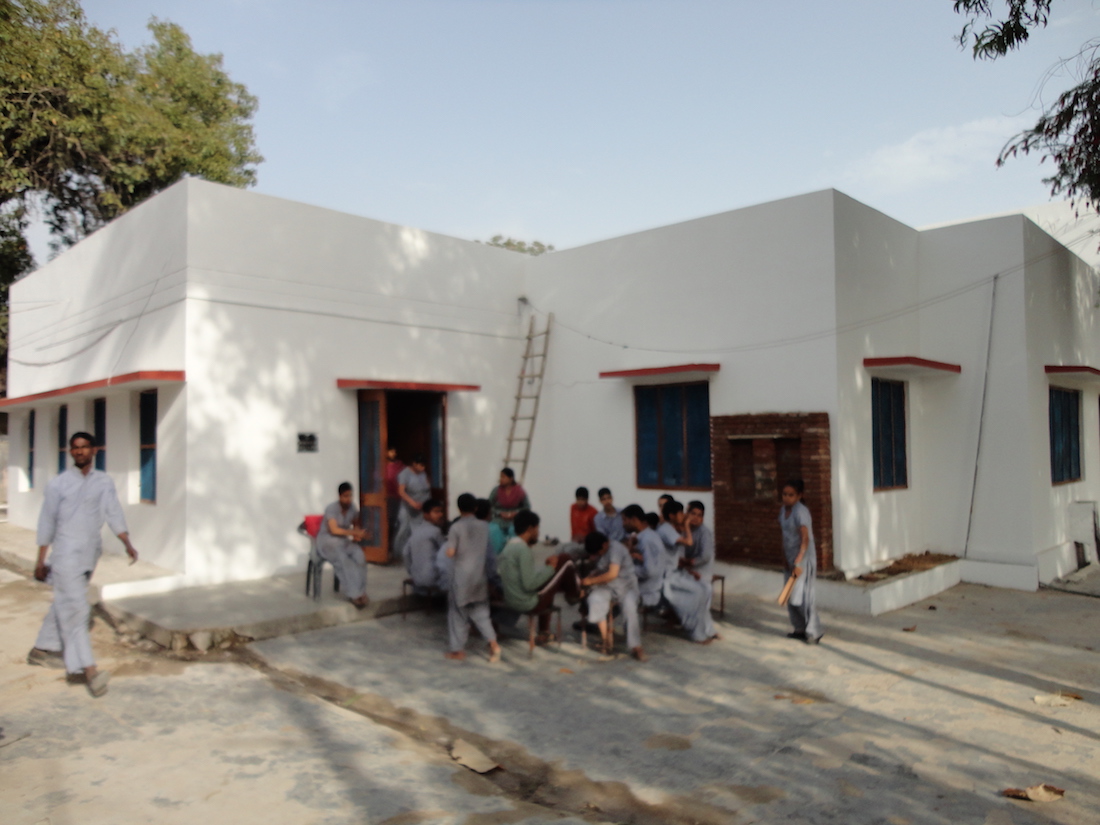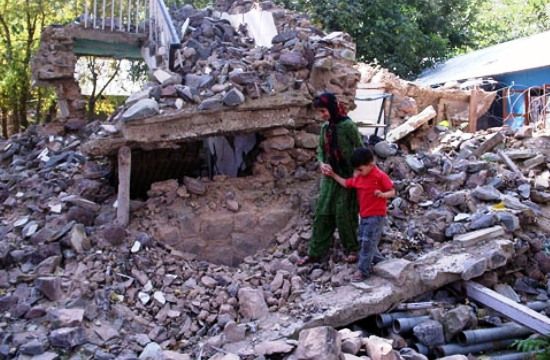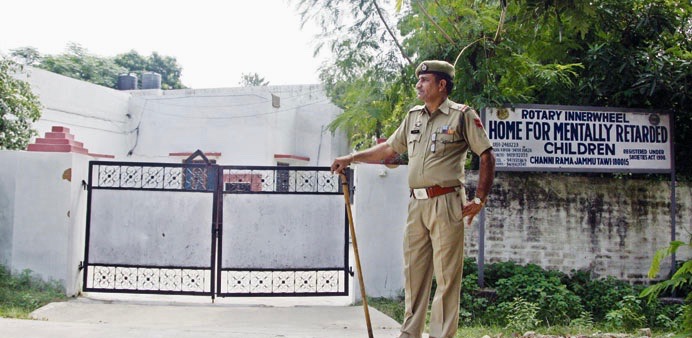No Covid19 orphan is displaced in Kashmir or Jammu but the last fortnight’s sting operation did revive the nightmares about some of the worst incidents of abuse to the destitute children in Jammu and Kashmir, reports Masood Hussain

Last fortnight when a sting operation by the Delhi based media house suggested that some so-called destitute managers in the social work sector are offering orphans for sale, it triggered panic. Within days, various official agencies located almost every Covid19 orphan just to ensure that they are safe.
The follow-up investigations did prove that no such case has actually taken place. The panic triggered by the operation, however, was not ill-founded, as there have been a lot of cases of abuse of children by organised groups in Jammu and Kashmir. Memories of all those incidents started reliving as the TV channel broadcast its investigation.
The Bangaluru Magician
In the winter session of the Jammu and Kashmir legislature in late February 2004, the lawmakers from Leh triggered a serious crisis in the house when they revealed that 10 kids, eldest of them 15, from poor backgrounds had been adopted by a Bangaluru orphanage. The alleged that an NGO, Samrakshana by a magician, commonly known as Jandugar Jagannath, runs an orphanage at Melkote, around 35 KMs. from Mandya in Karnataka. None of the ten kids is an orphan but they are from modest backgrounds.
The lawmakers alleged that apart from being given stale food, beaten up frequently, these kids are being taken by Jagannath for magic shows performed by him. Besides, they were being sexually abused as well. One of the relatives of these kids, they revealed found some of them working in the fields.
This torture, the lawmakers said forced six of them to escape and live somewhere in the Tibetan settlement at Bylukuppe. The four other kids identified by the lawmakers as Sonam Chothan, Dachan Ango, Chillas Angmu and Chillas Anchupin, are still in the magician’s orphanage and require a rescue.
Though some of the relatives had managed to reach the place and approach the police but the latter had not helped them anyway. This led the government to send an SOS to the Karnataka government seeking a rescue. Before the lawmakers had raised the issue, they had informed the government but the complete non-cooperation of the Karnataka government led them to make it public. The then PDP government was exploring approaching CBI to get the kids and look into the affairs of the magician’s home.
Nothing much is known about the follow-up but the particular magician’s exploitative homes were exposed. In December 2019, the Karnataka High Court ordered an in-depth investigation in the Samrakshana Anatha Ashrama that the magician was operating from Kengeri Upanagara. The intervention came in response to a PIL that proved sexual exploitation of the minor inmates of the orphanage, though not in the Ladakh case.
The Earthquake Orphans
An earthquake on October 8, 2005devastated vast belts of Kashmir straddling the Line of Control. The worst scenes were witnessed in Kashmir’s Uri and Tangdhar belts where 1350 people were killed and 6266 injured. The major earthquake left a few hundred young boys and girls orphaned, some losing both parents.

In December 2005, it was learnt that the Jammu and Kashmir government, then led by Congressman Ghulam Nabi Azad, has signed a memorandum of understanding with a Pune based NGO, Bharatiya Jain Sangathan (BJS) that permitted them to take 500 orphans from Kashmir’s ten districts to their homes. The NGO runs Wagholi Educational Rehabilitation Centre at Pune. The process started with the Congress president, Mrs Sonia Ghandi celebrating her birthday with the children in Uri. Of the, 106 were from Uri, 232 from Tangdhar and 162 from Poonch, Rajouri and Doda districts.
The government had announced that they will deposit a sum of Rs 5 lakh in every child’s bank account as the BJS will take care of their education, boarding, loading and welfare till they mature and pass the matriculation. While the basic amount would remain with the kids, the organisation taking care of them was permitted to access the interest that the deposits would earn. With the Congress government in place in Srinagar, the Social WelfareDepartment would drive the orphans from the two belts to the officially-run Bal Ashrams in Baramulla and Kupwara and later drive them to Pune. Mrs Gandhi personally attended the send-off of the first group of boys from SKICC Srinagar in a caravan of 12 JKSRTC buses. Only elect media was permitted to report the send-off. This was done as part of the rehabilitation of the earthquake victims who survived the tragedy.
Quickly, however, this triggered tensions in Kashmir society. People active in the social work sector said the uprooting of kids from home culture is against the very basics of rehabilitation. As they failed to manage a halt, they went to the court of law against the decision.
The petition pleaded that since no such move was permitted by the Maharashtra government in case of the Latur earthquake or by the Tamil Nadu government in case of Tsunami destitute, sending children from 10 Kashmir districts almost 3000 km away was as good as smuggling. They even questioned the intentions. The petition even claimed that somewhere in 2003, a batch of 200 Kashmir orphans was handed over to another Pune based NGO. They pleaded that facilities could be created within Kashmir to manage their rehabilitation and education especially in wake of a robust destitute management system that has evolved already.
Being sent to a different culture and a climatic zone, the petitioners argued that these kids could neither get integrated with Pune culture nor would eventually remain part of the mother culture.
Well before the next date of hearing, the government said 91 of the kids – 74 from Kashmir and 17 from Rajouri, Poonch and Doda – have returned home from Pune. Dispelling the panic, Azad told the assembly that BJS had taken 501 boys. He said only 121 of the orphaned were from the earthquake and the rest had lost their parents to the turmoil. He attributed the return of 91 to the violation of a section mentioned in the MoU.
“According to one of the clauses of the MoU, the children should not have been studying in classes higher than the tenth standard,” Azad explained. “However, there were about 30 children who had never attended school in their whole life, about 20 were studying in 11th or 12th standards when they were orphaned and 30 others had already appeared for their matriculation examination. Therefore, they were already disqualified to stay at Pune.” Besides almost 20 others were too young to be managed at home so they were also sent back.
Officials who accompanied the kids back home said the homesickness was the key factor for their return. The court banned the shifting of the kids but what was the follow up in case of already sent to Pune remained unknown.
The Worst Case
In September 2013, Deputy Commissioner Jammu Ajeet K Sahu and SSP Jammu Atul Goel received an anonymous complaint about mentally retarded girls being sexually exploited by the managers of the Rotary Inner Wheels in Channi Rama. The space was quickly raided and it turned out to be a harrowing case. After the gynaecologists established that five out of 17 female inmates have been regularly raped, a case (FIR 183 at Trikua Nagar police station under section 376(c) and 109 RPC) was registered immediately.

In quick follow-up, police arrested home Chowkidar Angad Kumar (Rajouri) and home Director Suram Chand Sharma (Paloura). Within hours, the facility – running since 1979 with 32 inmates in 2013, was taken over by the government as the officials found the inmates frightened.
A quick enquiry found the managers had kept no record of the people visiting the inmates. Besides, there was no proper record of the mentally retarded people admitted or who left the home. Not knowing of what it means, the inmates explained their exploitation using body language. Of the abused girls, two were having mild mentally retardation, one had moderate retarded, one had sub-normal intelligence (borderline intelligence) and another one was in psychosis.
The inmate with borderline intelligence confirmed to the officials that she was exploited routinely by staff and persons from outside the home. The investigators found the Home Director, S C Sharma, was even taking some inmates out of the home as and when he pleased.
A day later, Angad’s predecessor Surjeet Kumar (Nowshera) was also arrested. On September 18, the police arrested principal G L Koul and Rajinder Kapoor, the Secretary of the Home for “hiding facts”.
The case took an interesting turn a few days later when the police arrested a gynaecologist, for allegedly managing the abortion of one of the sexually abused girls at her private clinic. Her arrest led to another shock when a sub-inspector rank police official, went to the police station, opened the local up and took the lady doctor to the hospital. Embarrassed, the police put her services under suspension. An enquiry was imitated against her as well for unauthorised entry into the police station and taking a detainee away.
Civil society had to approach the court to ensure that all the 14 girls should be medically examined as the authorities had restricted their investigations to only five of them. The court was even told that the inmates were even taken out to Punjab but the arrests have been restricted to two persons only.
In October 2013, the principal and the secretary were bailed out. In November 2013, senior advocate, Sunil Sethi was appointed Special Public Prosecutor in the case. In December, the court banned the reemployment of the officials who have been named in the FIR or remotely involved in the crime. In the PIL that had been filed by a specially-abled lawyer, which eventually was the main case, the court was seeking a status report of the investigations by February 2014. In March 2014, a division bench of the High Court disposed off the PIL with the direction that the district administration can review its takeover decision after six months if it is satisfied with the reorganised management committee. Besides, it permitted the victims of the worst exploitation to seek compensation from the social welfare department under law. But what is the status of the main police case?
The Kathua Pastor
In September 2018, Jammu and Kashmir police raided an orphanage in Kathua and arrested Antony Thomas, a Christian missionary from Kerala. Jitender Mishra, an Assistant Commissioner rank officer led the raid in which the team rescued 17 inmates – eight girls and 11 boys, who were immediately shifted to Bal Ashram and Nari Niketan in Kathua. The inmates, mostly from poor families and single parents, belonged to Punjab, Himachal Pradesh and various parts of Jammu. The inmates were enrolled in a local government-run school but were living in the orphanage that the Pastor was operating.
Police arrested the pastor under Section 376 (rape) RPC and the Protection of Children from Sexual Offences Act, after the girl inmates alleged the missionary would call them to his private room where he would touch them inappropriately. Authorities said he lacked the authority to operate the home.
Thomas, 62, however, denied the allegations, saying he was running the shelter with his wife who has gone home in wake of floods in Kerala. He had claimed that his orphanage was a sister concern of Pathankot based Pentecostal Mission. Authorities however said the Mission has refused any association with the illegally operated orphanage. Jammu and Kashmir Christian Forum president Marcus Gill defended the pastor and linked Thomas’s arrest to the “increase in the harassment of Christians” in Jammu after the BJP came to power. However, the court sent the missionary to police remand. The exact status of the case is not known.
Authorities put the children under medical treatment as they all were allegedly suffering from scabies.
These incidents that had taken place in Jammu and Kashmir had faded in public memory. However, when the sting operation showed two young men claiming to be the managers of some orphanages offering children and putting a price tag, it triggered a panic. The government acted quite fast and discovered that everything was alright.
However, authorities initiated stringent measures to improve the systems. Since the government is in an audit mode, there is no harm if the key instances are probed, cases left midway are concluded and the society is informed about the action taken and the people involved. What is the harm if Jammu and Kashmir is told about the number and status of destitute orphans who were moved out by certain politically connected NGOs?















